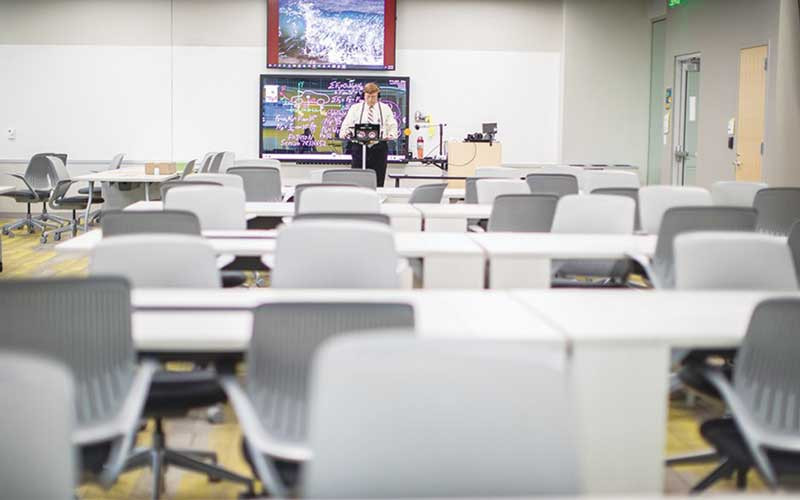
The love for language and passion for teaching inspired Anyway Tapera to pursue second language teaching as a career.
After studying in China for three years, the trained educator came back to Zimbabwe to put to use what he learned overseas.
Today, he is among a group of local Chinese language specialists who are promoting ties between Zimbabwe and China through language teaching and research.
“It has been a remarkable journey of Chinese studies and teaching,” Tapera told Xinhua.
“After studying Mandarin for four years in Zimbabwe, it was in 2014 that I got awarded a scholarship to further my studies in Chinese language at Hebei University in China. I obtained a master’s degree in teaching Chinese as a second language in July 2017.”
“The desire to continue impacting other people's lives through learning Chinese brought me back home upon completion of my studies,” said Tapera.
Following his graduation, Tapera was employed as a Chinese teacher by the University of Zimbabwe Confucius Institute, a Chinese language and cultural learning centre in Harare.
He has so far taught Chinese at several colleges and schools across the country and is currently lecturing at Hillside Teachers’ College in Bulawayo.
Through his efforts, next year Chinese will be introduced as a subject at two public high schools in Bulawayo. And some of his students have followed in his footsteps to become Chinese language teachers.
“As a lecturer at Hillside College, together with the vision and mission of the University of Zimbabwe Confucius Institute, I then decided to introduce the language at government schools since most private schools had dominated the teaching of Mandarin,” he said.
Tapera is currently working on several Chinese textbooks to be locally used and assessment instruments for those who desire to be Chinese teachers.
“Apart from the teaching fraternity, l have assisted several companies across Zimbabwe in the machine and plant installation translation services,” he said.
Furthermore, Tapera said learning a global language such as Chinese gives students an opportunity to compete in the global village.
In Zimbabwe, learning Chinese is considered to be a lucrative investment.
The rapid increase of Chinese investments and trade driven by strong bilateral relations between Zimbabwe and China has spurred the trend.
“Those relations opened a lot of opportunities for young Zimbabweans, and for young Zimbabweans to benefit from opportunities presented by the Sino-Zimbabwe relations, they need to, among other things, master the Chinese language,” said Tawanda Zimhindo, a Chinese language lecturer at the University of Zimbabwe and founder of Zimgro Chinese Language Consultancy.
“The moment one learns Chinese language and masters it well, it means they will no longer be confined to their nations, but they will be global citizens, exposing themselves to global opportunities.”
Zimhindo also said a fair amount of Zimbabwean imports are coming from China.
“For that trade and economic exchange to happen properly there is need for communication, and that communication can only be enhanced by someone who understands both the Chinese language and English language,” Zimhindo said.
“The moment that you learn Chinese up to a certain extent, you can apply for various scholarships, and the best part of it is that scholarships are not only for people to study Chinese language, but also for people to study majors of their own. choice.






